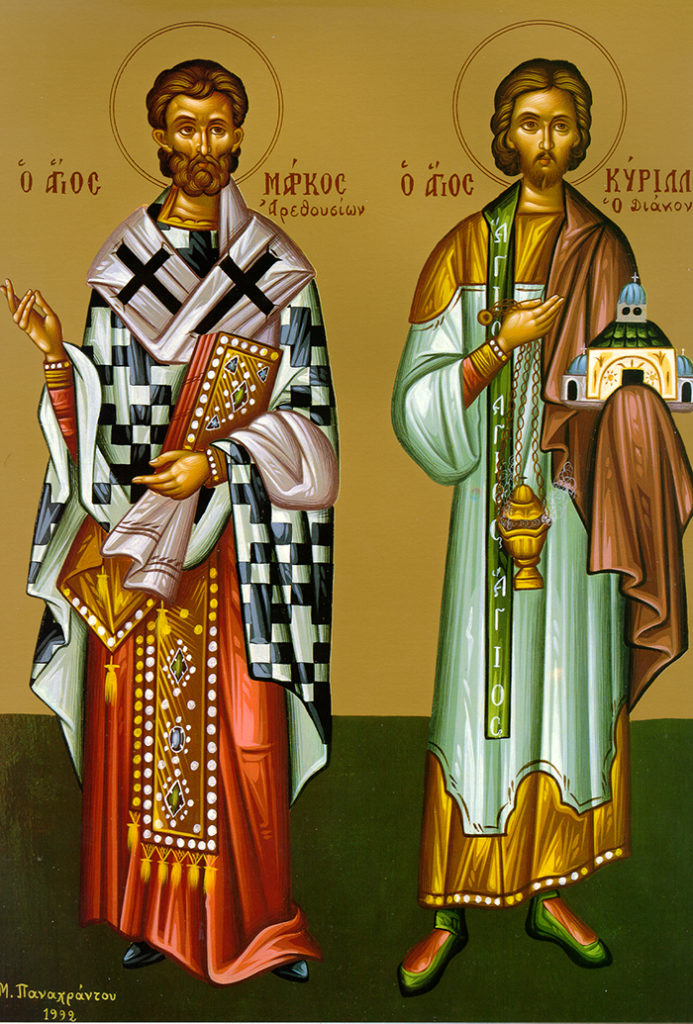

Our venerable hieromartyr Mark, Bishop of Arethusa, suffered for his faith in Christ under the emperor Julian the Apostate (361-363). By order of the emperor Constantine, St. Mark had once destroyed a pagan temple and built a Christian church. When Julian came to the throne, he persecuted Christians and tried to restore paganism. Some citizens of Arethusa renounced Christianity and became pagans. Then, St. Mark’s enemies decided to take revenge on him. The old bishop hid himself from the persecutors at first, but then he gave himself up when he learned that the pagans had tortured many people in their search for him. St. Gregory the Theologian describes the sufferings of St. Mark in his First Oration against Julian.
The historian Theodoritus relates that during the reign of St. Constantine the Great, the deacon Cyril destroyed many idols and pagan temples in Heliopolis, Phoenicia. He was put to death for this during the reign of Julian the Apostate. During this time the pagans killed many Christians in the Palestinian cities of Ascalon, and Gaza: priests, women and children who had dedicated themselves to God. The holy martyrs received crowns of victory in the Kingdom of Heaven, and the torturers also received their just recompense: eternal torment in Hell.
O God of our ancestors, You always deal with us according to your everlasting compassion, take not your mercy away from us; but through the prayers of our ancestors, guide our lives along the ways of peace.
Having become a splendor of truth, you have illumuned the very ends of the earth. For this reason, we bless you, O martyred priests.
Epistle
Hebrews 6: 9-12
Brothers and sisters: Even though we speak in this way, we are persuaded of better things in your regard, things pointing to your salvation. God is not unjust; he will not forget your work and the love you have shown him by your service, past and present, to his holy people. Our desire is that each of you show the same zeal to the end, fully assured of that for which you hope. Do not grow lazy, but imitate those who, through faith and patience, are inheriting the promises.
Gospel
Mark 7: 31-37
At that time Jesus left the territory of Tyre and returned by way of Sidon to the Sea of Galilee, into the district of the Ten Cities. Some people brought him a deaf man who had a speech impediment and begged Jesus to lay his hand on him. Jesus took him off by himself away from the crowd. He put his fingers into the man’s ears and, spitting, touched the man’s tongue; then Jesus looked up to heaven and emitted a groan. He said to the man “Ephphathal!” (that is “Be opened!”) At once the man’s ears were opened; he was freed from the impediment, and began to speak plainly. Then Jesus enjoined them strictly not to tell anyone; but the more he ordered them not to, the more they proclaimed it. Their amazement went beyond all bounds and they said: “He has done everything well! He makes the deaf hear and the mute speak!”
Icon courtesy of Jack Figel, Eastern Christian Publications – ecpubs.com
Friday, March 28 –